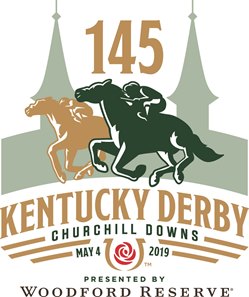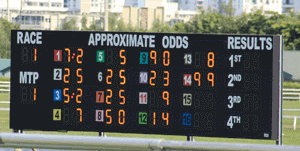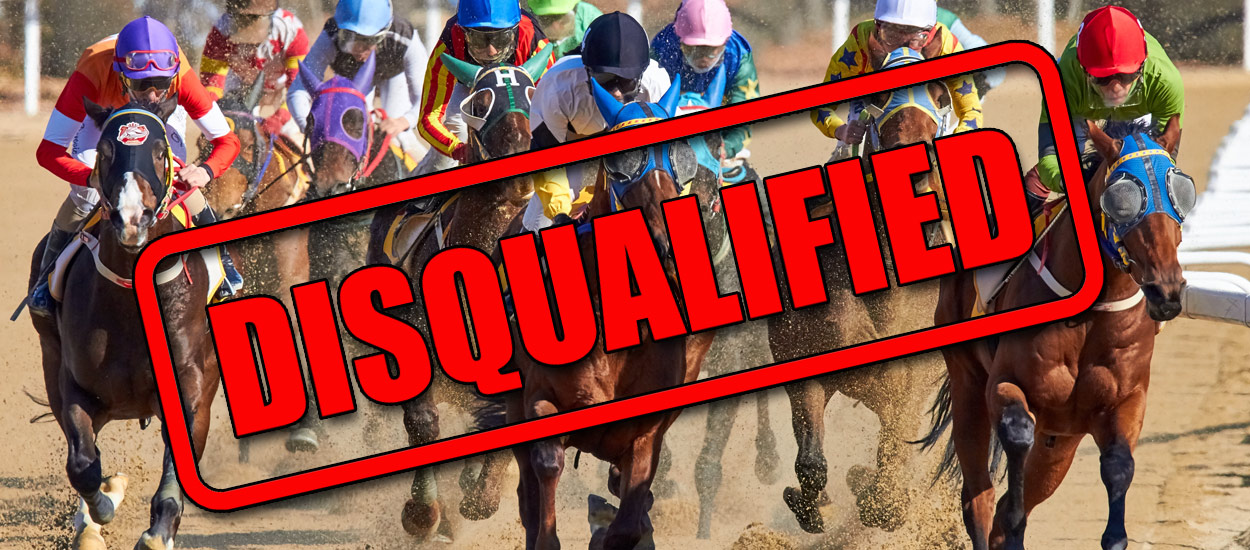Changing to international rules for disqualifications is necessary
Saturday’s Kentucky Derby yielded the worst possible outcome for the horse racing industry in North America. Desperate for a feel-good story to overcome the negative publicity horse racing has been getting as a result of the horse deaths, the industry seemed to get what it needed when Maximum Security, a former $16,000 claimer, led wire to wire to win the Derby by almost two lengths. The horse was extremely popular with the betting public as well, as he went off as the 9/2 second choice and was favored almost until race time. The feel-good story unfortunately turned sour when a claim of foul was launched against Maximum Security by the jockeys on Country House and Long Range Toddy and the track stewards disqualified the horse and placed him near the back for drifting in the stretch and impeding the progress of two horses. Immediately the backlash against the stewards and the decision was evident. as the crowd in Kentucky booed Country House and his connections in the winner’s circle and Twitter was ablaze with tweets from both bettors and the general public who seemed to be furious with the longshot’s win. Even President Trump commented that in his view the decision was a bad one and the best horse didn’t win. That comment is undeniable. Country House was clearly not the best horse in the race and the interference occurred against War of Will, who then bumped into Long Range Toddy. Country House wasn’t affected at all and he greatly benefited from the interference, since he was able to race wide of the two who were impeded and grab second place, while the horses that truly were affected dropped well back.
Immediately the backlash against the stewards and the decision was evident. as the crowd in Kentucky booed Country House and his connections in the winner’s circle and Twitter was ablaze with tweets from both bettors and the general public who seemed to be furious with the longshot’s win. Even President Trump commented that in his view the decision was a bad one and the best horse didn’t win. That comment is undeniable. Country House was clearly not the best horse in the race and the interference occurred against War of Will, who then bumped into Long Range Toddy. Country House wasn’t affected at all and he greatly benefited from the interference, since he was able to race wide of the two who were impeded and grab second place, while the horses that truly were affected dropped well back.
There are arguments both ways as to whether Maximum Security should have been disqualified. But, most of the public seem to believe the sloppy track, combined with the fact that jockey Luis Saez straightened out the horse as he drifted, should have concluded in the result being left alone. It also can’t be overlooked that this was the biggest race and no horse had ever been disqualified before in the Derby. Other purists however, including the stewards believed that Maximum Security interfered with War of Will’s progress, which was enough to disqualify the horse.
The stewards may have been correct in their interpretation, but from a public relations perspective it was a disaster. The biggest problem isn’t that Maximum Security was disqualified, but rather that an inferior horse that had no real chance of winning was rewarded, while the two horses that truly were interfered with got nothing. It would effectively be like a Masters tournament where Tiger Woods is leading, Phil Mickelson is 2 shots back, Jordan Spieth is 3 shots back and Ashun Wu is 10 shots back in fourth. A viewer runs through every tape and finds possible rule violations by Woods, Mickelson and Spieth, calls the PGA Tour and provides the proof and the tournament disqualifies the 3 leaders, handing the tournament to Ashun Wu. It would clearly be a win with a big asterisk next to it as is the case with this Derby. It also can’t be overlooked that major horseplayers lost over $9 million on the tote wagers as a result of the disqualification whereas only some shot takers would have collected on the 65/1 longshot.
I spoke with a UK horse player who said that if this happened in any country other than the United States or Canada, the disqualification never would have happened, since Maximum Security won too easily. Researching the interference rules, I found out this is true. There are 2 classes for inquiries – Class 2, which the U.S. and Canada use, and Class 1, which is used in the rest of the world. Class 2 disqualification requirements as a result of interference are as follows:
A horse crossing another may be disqualified, if in the judgment of the stewards, it interferes with, impedes or intimidates another horse, or the foul altered the finish of the race, regardless of whether the foul was accidental, willful, or the result of careless riding. The stewards may also take into consideration mitigating factors, such as whether the impeded horse was partly at fault or the crossing was wholly caused by the fault of some other horse or jockey.
Class 1 rules for interference used everywhere else are far less stringent:
If, in the opinion of the Staging Authority’s relevant judicial body, a horse or its rider causes interference and finishes in front of the horse interfered with but irrespective of the incident(s) the sufferer would not have finished ahead of the horse causing the interference, the judge’s placings will remain unaltered.
So in better words, in the U.S. and Canada if a horse interferes with another anywhere in the race, the stewards will likely disqualify the horse and place it behind the horse that was interfered with, even if that horse had no chance of winning the race and even if the winner was clearly the best horse. In the rest of the world if a horse was likely to win anyways, then it will not be disqualified. Moreover, there is a rule in many countries, including the UK, that allows the stewards to award the win to the horse that would have won as a result of interference even if that horse was not in second place. So effectively if this race used Class 1 inquiry rules instead of Class 2 the stewards may have felt that War of Will was on his way to victory and only lost as a result of interference, so he would have been awarded the win despite finishing well back in the race - although most certainly the stewards would have left the result alone since Maximum Security was the best horse. As one UK steward wrote on social media following a race in the UK where the result was controversially left as is:
"Our objective is to ensure that the best horse in the race is awarded the victory which is only fair to the bettors, owners and trainers. If a jockey rides recklessly then he will be fined or suspended for his actions but that is independent of the result if indeed the horse was the likely victor."
So, under no circumstances would Country House have won the Kentucky Derby this year if Class 1 interference rules were adopted instead of Class 2. Maximum Security almost certainly would have won, simply because he was the best horse in the race and ended up pulling away from the biggest competition, while those who were interfered with were dropping well back.
The other area where North America can really benefit by adopting rules from other jurisdictions is with fixed odds betting. When SCOTUS threw out PASPA, many UK based bookmakers were excited about the prospects of getting in on the U.S. market and they likely hoped it would start with horse racing. Aside from soccer, horse racing is the bread and butter of UK sports betting. But the North American horse racing industry isn’t all that anxious to give up their monopoly on tote betting for fear that, like in the UK, most bettors would wager on fixed odds rather than the tote and they rely on the takeout from bets to pay for track upkeep, purses and salaries. But the benefits of fixed odds over tote are obvious, plus bookmakers in the UK still pay a percentage of their bets to the tracks and tote racing overseas is still popular, in addition to the fixed odds betting. Maximum Security was as high as 20/1 to win the Derby at UK betting companies a couple of weeks before the race and he was as high as 10/1 on race day. Bettors could take those odds being assured that the closing tote odds wouldn’t affect them. Instead of 9/2 odds they could have locked in at double the odds. Moreover, because UK bookmakers are confident in their horse racing oddsmakers, they have best odds guaranteed, meaning that if the horse went up in price from the fixed odds taken, they would get the higher odds. And having spoken to many younger bettors in North America the pari-mutuel requirement is one of the biggest reasons they don’t bet on horse racing. As one 28-year-old father of 2 told me a couple of years back:
When SCOTUS threw out PASPA, many UK based bookmakers were excited about the prospects of getting in on the U.S. market and they likely hoped it would start with horse racing. Aside from soccer, horse racing is the bread and butter of UK sports betting. But the North American horse racing industry isn’t all that anxious to give up their monopoly on tote betting for fear that, like in the UK, most bettors would wager on fixed odds rather than the tote and they rely on the takeout from bets to pay for track upkeep, purses and salaries. But the benefits of fixed odds over tote are obvious, plus bookmakers in the UK still pay a percentage of their bets to the tracks and tote racing overseas is still popular, in addition to the fixed odds betting. Maximum Security was as high as 20/1 to win the Derby at UK betting companies a couple of weeks before the race and he was as high as 10/1 on race day. Bettors could take those odds being assured that the closing tote odds wouldn’t affect them. Instead of 9/2 odds they could have locked in at double the odds. Moreover, because UK bookmakers are confident in their horse racing oddsmakers, they have best odds guaranteed, meaning that if the horse went up in price from the fixed odds taken, they would get the higher odds. And having spoken to many younger bettors in North America the pari-mutuel requirement is one of the biggest reasons they don’t bet on horse racing. As one 28-year-old father of 2 told me a couple of years back:
"I won’t bet on something where I don’t know what odds I’m getting. If I make a bet on a game I am doing so because I believe that the odds I’m receiving are better than what they should be. How can I bet on a horse at 10/1, thinking it should be 6/1, but only getting 2/1 at the end? It’s stupid and I don’t see how it can be profitable."
With fixed odds, however, the fear of getting ripped off like the 28 year old implied in his comments to me isn’t there, and best of all, at some UK companies they even have insurance against disqualifications. At Bet365, bettors were paid out at the odds taken on both Country House and Maximum Security for this year’s Kentucky Derby as a result of an offer they have called Double Result: Double Result
Double Result
We will pay out on both the disqualified horse and the official winner on all Win and Each Way bets on Horse Racing in the UK and Ireland, as well as US Racing where Fixed Odds are offered. This offer applies to Ante-Post bets, Each Way Extra bets, Betting Without bets, Enhanced Win bets, Cover Bets, Place Only bets, Not To Be Placed bets, Forecasts and Tricasts. No more waiting for a steward’s enquiry - first past the post is the winner! All other markets, including Tote bets, Not to Win bets, Match Bets and Jollies And Rags bets are excluded from this offer.
Bet365 said they offer this because it is only fair that a bettor is paid out on the result of the finish and not the arbitrary decision of someone sitting in a booth. Other UK companies offer a similar promotion, but only on UK races.
When I first read about best odds guaranteed and the double payout I asked a group of gamblers I have contact with, who don’t wager on horse racing, if they would consider adding horse racing to their betting repertoire if they could get guaranteed odds and if the decision of judges didn’t come into play. By a 3 to 1 margin the gamblers said to me they would.
So, the North American horse racing industry is now in a big quandary. Their biggest horse race has effectively been ruined as the result of the stewards’ decision to disqualify the best and most popular horse in the race and award it to one of the worst horses who probably shouldn’t have finished in the money. At this point it’s likely that no one will care if Country House wins the next two Triple Crown races and networks are already expecting one of the worst TV viewership figures for the Preakness. Maximum Security’s owner said as a protest he won’t run the horse in the Preakness and he has launched an appeal of the Kentucky Derby result. The majority of the public believe the result was a sham and despite following the rule as it is laid out, Barbara Borden, the chief state steward for Kentucky is being seen by many as dirt.
What to do now as a result of this catastrophe is uncertain, but a change from Class 2 to Class 1 interference rules would be a good start. It would be a major shift and a major concession by the industry but the fact the interference happened in the Kentucky Derby may be enough to convince the North American horse racing industry to at least consider it. Japan always had class 2 rules until a very controversial disqualification on national TV of a horse in the Japan Cup resulted in the government demanding a switch to class 1 rules so that the best horse would be declared the winner regardless of the circumstances. Who knows maybe this will be a wake up call to the industry to do something and they might even consider allowing fixed odds betting to complement tote wagering as well. It’s not likely, but almost certainly it will at least get the industry executives to discuss the options.
Read insights from Hartley Henderson every week here at OSGA and check out Hartley's RUMOR MILL!








































